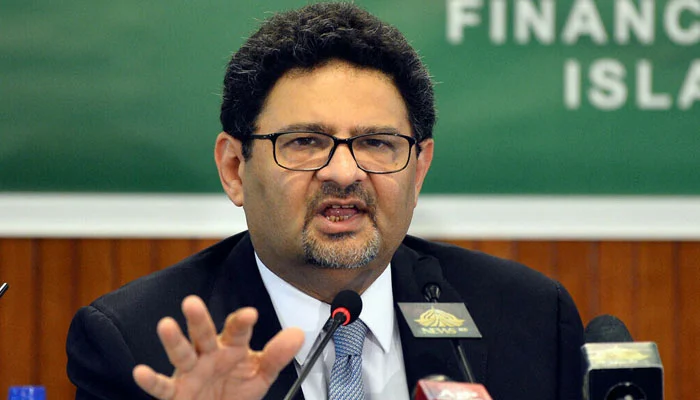Miftah Ismail, a former finance minister, stated on Tuesday that the likelihood of Pakistan defaulting has increased and urged the current government to take action to avert the imminent danger.
Ismail stated the following on the Geo News program “Aaj Shahzeb Khanzada Kay Saath”: Pakistan should not default, but I am absolutely convinced that our current course could lead to default as the risk has increased. We ought to do whatever it may take to stay away from the peril [of default].”
He stated that Pakistan will continue to face the possibility of default until the government completes the ninth IMF review.
Pakistan faces danger; “The threat of default will remain high as long as the IMF is not back on the table,” Ismail, who held the position of finance minister for more than five months, stated. “It has gone back in danger.”
‘PTI pushed Pakistan towards default’
The former finance minister claimed that the country had been pushed into default by the previous administration and rejected the PTI Chairman Imran Khan’s claim of early elections.
“Khan is to blame for encouraging Pakistan to default; He is responsible for breaking his promise to the IMF; When we attempted to revive the IMF program under Prime Minister Shehbaz Sharif’s leadership, Khan wanted to stop it.
When the State Bank of Pakistan (SBP) paid $1 billion for the sukuk bond earlier this month, Pakistan ended its immediate default risk.
However, since then, the foreign exchange reserves have reached a critical level, having dropped 10.45 percent to $6,714.9 million on December 2, a four-year low.
In contrast to the agreed-upon 0.7% of GDP, the fiscal deficit has already reached 1% of GDP in the first quarter of the current fiscal year.
However, Miftah’s partymate and Minister for Finance and Revenue, Senator Ishaq Dar, stated that Pakistan would not default because it was on the right track.
According to two sources, Pakistan is anticipated to secure a multibillion-dollar financial support package from long-time ally Saudi Arabia this month in an effort to strengthen its forex reserves as the nation’s ninth review of a $7 billion IMF bailout ran into difficulties.








